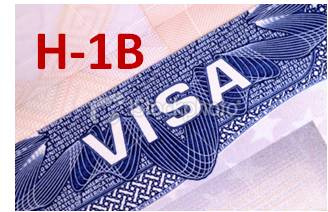Trump Administration’s Recent Quiet Crackdown on H-1B Visas Could Hobble U-M Hiring
by Harper Neidig
The Hill is reporting that the Trump administration has quietly issued new policy guidance that would make it harder for employers to use the H-1B visa program to bring foreign computer programmers into the U.S.
A policy memo from the U.S. Citizenship and Immigration Services changes the way the agency will process visa applications for computer programming positions, making companies jump through extra hoops to fill those jobs with foreign workers.
Any further tightening of the H-1B visa requirements or changes to the definitions of speciality occupations could adversely impact the University of Michigan.
Documents show that the between 2014-2016, the University Of Michigan filed 1676 labor condition applications for H-1B visas and 147 labor certifications for green cards. The University of Michigan was ranked 67th among all visa sponsors. In 2016, the University of Michigan applied for 517 H-1B visas, the majority of which (145) where for postdoctoral researchers. Of the 517 H-1B visas applied for, 337 were certified and only two of the applications were denied, according to records provided by the U.S. Dept. of Labor. In the first three month of 2017, the University of Michigan submitted 139 H-1B visa applications, only one of which was denied.
Between 2013-2016, 168 Assistant Professors at U-M were permitted entry into the U.S. and permission to work under the aegis of H-1B visas secured for them by their employer. In 2014, among those denied H-B1 visas were computer programers, systems analysts, post-docs, research fellows, a professor, clinical lecturers, a research investigator, a senior associate regulatory analyst and a major gifts officer.
Among the countries from which the highest number of U-M’s visa applicants come are China, India and Canada.
“Based on the current version of the Handbook, the fact that a person may be employed as a computer programmer and may use information technology skills and knowledge to help an enterprise achieve its goals in the course of his or her job is not sufficient to establish the position as a specialty occupation,” the memo reads.
The memo, which was issued on Friday, was first reported by Axios.
Employers use the H-1B program to import workers for highly skilled positions that are difficult to fill. The Trump administration, however, has alleged that some employers, including tech companies, have abused the program to the detriment of American workers.
The lottery for companies to apply for 2018 visas opened on Monday.

